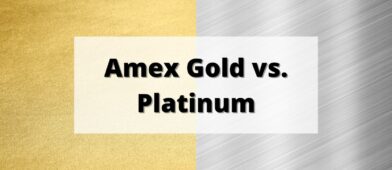Choosing your first credit card is an important decision. This is the card that will help you begin building your credit reputation. However, you also want the card to offer you benefits that good credit cards should.
Not all starter credit cards have great terms. When shopping for the best first credit cards, consider the interest rate, annual fee, and any rewards programs the card offers.
It’s common for those wishing to obtain their first credit card to get a secured credit card that is backed by a savings account balance matching the credit card’s spending limit.
However, many credit card companies are issuing unsecured credit cards to new credit customers as well.
Table of Contents
Best Secured Credit Cards
Secured cards often require a deposit of the full credit limit. This protects the bank in case of default, they can simply access the savings account to pay off the balance.
But if you can prove yourself responsible the cards often refund the deposit within a year.
Discover it Secured Credit Card
Features:
- Annual fee: None
- Purchase interest rate: 22.99%
- Required credit rating: Poor to excellent
One of the nicest benefits of the Discover it Secured Credit Card is that it offers 2% cash back on gas station and restaurant purchases. You can earn cash back on up to $1,000 in purchases each quarter.
In addition, Discover automatically reviews your account each month, starting in the eight month of ownership. If you qualify, they’ll automatically upgrade you to a Discover unsecured credit card.
Note that you can call to ask for an increased spending limit after your account has been open for at least 31 days. However, any approved increase spending limit must be accompanied by an increased security deposit of the same amount.
Other benefits of the Discover it secured card include no late fee charged on your first late payment, and no APR increases due to late payments. The maximum credit limit for this card is $2,500.
Pros:
- Flexible credit qualifications
- Cash back on qualifying purchases
- No annual fee
- Automatic upgrade to unsecured card
Cons
- Cash back earnings have a low cap
- Lower credit limit than some other cards
Platinum Secured Credit Card from Capital One
Features
- Annual fee: None
- Purchase interest rate: See issuer for current rate
- Required credit rating: Poor to excellent
One feature that makes the Platinum Secured Credit Card from Capital One different from other cards is that you can “earn” your security deposit back as a statement credit if you maintain a positive payment history on the account.
In other words, the card can slowly evolve into an unsecured card with responsible use. Also, Capital One will automatically review your account and consider raising your credit limit after you’ve owned the card for at least six months.
Capital One will start you out with a low credit limit when you first get this card, however, you can ask for credit limit increases until you reach the card credit limit maximum of $1,000.
Pros
- Flexible credit qualifications
- No annual fee
- Automatic refund of your security deposit with responsible performance
- Installment payments on security deposit are allowed
Cons
- Low maximum credit limit
- High interest rate
OpenSky Secured Visa Credit Card
Features
- Annual fee: $35
- Purchase interest rate: 17.39%
- Required credit rating: None
The OpenSky Secured Visa Credit Card is different in that there is not a credit check required to get a card. OpenSky offers credit limits between $200 and $3,000.
As with the other cards here, OpenSky does report your activity to the three major credit bureaus so that you can use the card to build up your credit history.
If after using the card you decide that you want a credit limit increase, you can call OpenSky’s customer service number and ask for one. However, you’ll need to send in an additional security deposit to match the new credit limit.
And OpenSky isn’t required to approve all card applications or credit line increase requests.
Pros
- No credit check required
- Lower interest rate than other cards
Cons
- Annual fee charge of $35
- No rewards program
Best First Unsecured Credit Cards
Unsecured starter credit cards are nice because they don’t require any type of a security deposit. Here are some of our favorite unsecured first credit cards.
Jasper Cash Back Mastercard
Features
- Annual fee: None
- Purchase interest rate: 15.49% to 24.99%
- Required credit rating: None
The Jasper Cash Back Mastercard is a secured card that does not require a credit history. Jasper will check your credit history and take it into account as they determine approval.
However, those with no credit history are approved based on other factors such as employment history. The card offers a credit limit of up to $5,000.
And the company will pay you up to 6% cash back when you refer friends and family members who are approved for an account. This is in addition to the 1% cash back Jasper pays on all qualifying purchases.
After three months in good standing, your 1% cash back will be automatically credited to your Jasper account.
Pros
- No annual fee
- Cash back rewards
- Referral rewards
- Up to $5,000 credit limit
Cons
- Interest rate may be high for some borrowers
- Account must be in good standing to earn cash back
Platinum Mastercard from Capital One
Features
- Annual fee: None
- Purchase interest rate: 26.99%
- Required credit rating: Fair to excellent
The Platinum Mastercard from Capital One offers credit cards to everyone but those with poor credit. The interest rate is high at 26.99% for purchases.
However, the card is good for those who are seeking to build credit. And you’ll automatically be considered for a credit line increase after six months of ownership.
There are no rewards or cash back benefits with this card.
Pros
- No annual fee
- Lower threshold for approvals
- Automatic credit increases for those who qualify
Cons
- Higher interest rate
- No cash back or rewards programs
Discover it Student Chrome
Features
- Annual fee: None
- Purchase interest rate: 12.99% to 21.99%
- Required credit rating: Poor to excellent
The Discover it Student Chrome card can be a great starter credit card for students aged 18 and up, whether in high school or college. It has flexible approval guidelines and other great benefits too.
The card offers 2% cash back on qualifying gas station and restaurant purchases up to $1,000 in purchases per quarter. You can also get a $20 annual statement credit when you maintain a GPA of 3.0 or higher.
Discover won’t charge you a late fee on your first late payment. They also pay a referral bonus in the form of a credit statement when you refer friends who open accounts.
Pros
- No annual fee
- Cash back rewards
- Lower interest rate range
- No late fee on first late payment
Cons
- Cash back rewards apply to limited purchases
- Discover card acceptance outside of the U.S. may be limited
How Starter Credit Cards are Different
You might be wondering how starter credit cards are different from the credit cards you can qualify for once you’ve built a solid credit history.
There are a few ways in which starter credit cards are different from standard credit cards.
Higher Interest Rates
Starter credit cards typically come with higher interest rates, although not always. Standard credit cards often have interest rates between 10% and 15%.
However, it’s not uncommon to find starter credit card rates hovering around 18% to 27%. For that reason, it’s important to be careful about carrying balances over from month to month. You can avoid interest altogether if you pay your card off in full each month.
It’s best if you can use the card regularly, yet pay the balances before too much interest starts accruing on them. More on that later.
Lower Credit Limits
Starter credit cards also have lower credit limits. While standard credit cards often have limits of up to $15,000, starter cards typically don’t offer credit limits above $5,000.
The good news regarding this feature is that those using starter cards can’t get themselves into an astronomical amount of debt.
However, some might find these lower credit limits frustrating.
Many Starter Credit Cards Require a Security Deposit
While there are some unsecured credit cards available for new credit holders, many starter credit cards are secured cards.
These cards often require a cash deposit equal to the card’s maximum credit limit. Companies offering secured credit cards require this deposit to protect the company from loss.
While you may find the need for a security deposit to get a credit card frustrating, you can always think of it as a way to start building your emergency fund.
How to Build Credit with Your Starter Credit Card
Once you’ve received your starter credit card, it’s important to use it correctly to help you build credit. That way you can get on the path to qualifying for mainstream credit cards with better terms and features.
Here are some tips for using your new credit card wisely.
Use It Regularly
You’ll want to use your new credit card often; at least once a month. Part of building a solid credit record is showing you can use credit responsibly.
When it comes to what “responsibly” is, in a nutshell it means using the card often while keeping the balance only a small percentage of the credit limit.
Experian recommends keeping your “credit utilization rate” below 30%. So if you have a card with a $1,000 limit you should keep the balance under $333.
Personal finance experts recommend never charging more than you can pay off within a 30-day period. That way you can avoid having balances get out of hand while still building your credit record.
Make all Payments on Time
Another key factor in increasing your credit score is making all your payments on time.
Set up autopay on the account so that you can’t miss a payment, even if you forget to send one in. Ideally, you should set it up to pay the full balance. But at the very least set it up to pay the minimum payment on the due date that way you can’t ever be late.
Keep the Card Open and Active
And finally, be sure to keep the card open and active, even when you start qualifying for better credit cards.
You see, the length of your credit history is also important when establishing new credit. Since this is your first credit card, it is instrumental in helping you build a long-term credit history.
So even when it gets put on the back burner in favor of cards with better terms, keep it open and use it occasionally so that it can remain the anchor for helping you have a lengthier credit history.
Summary
The best first credit cards are cards that help you build your credit history without taking you to the bank (so to speak) with unfavorable interest rates and terms.
The credit cards we’ve mentioned here are some of the best starter credit cards on the market today. Consider applying for the cards via the links above to begin your journey to building a great credit record.



